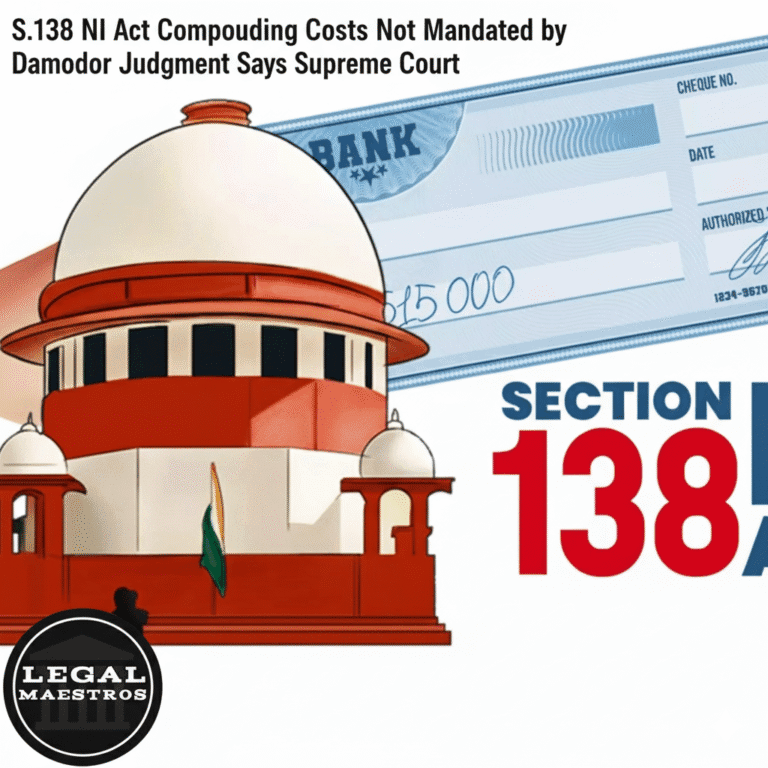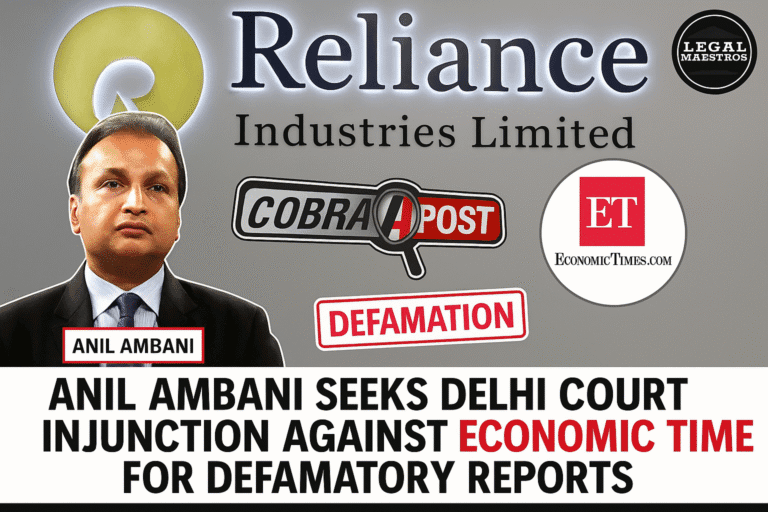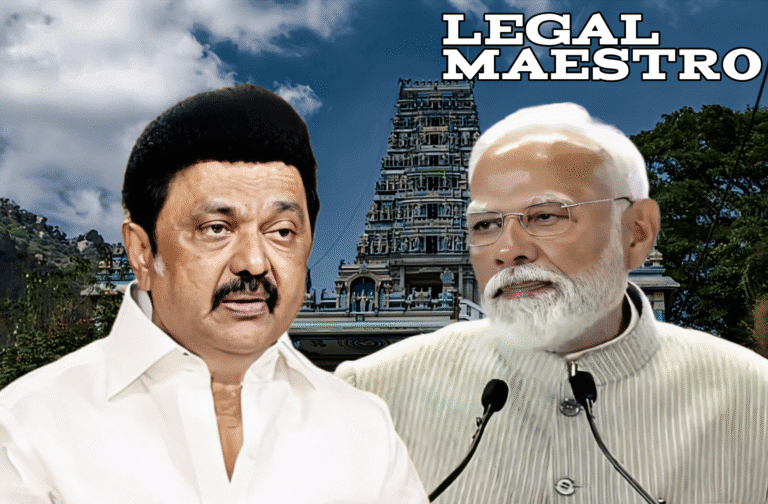
How Amazon’s Cloud Services Escaped Royalty Taxation Under the Income Tax Act, 1961
Introduction
In late May of 2025, the Delhi High Court handed down a decision that would go down in history as a landmark decision in favor of Amazon Web Services (AWS). According to the decision of the court, payments made by Indian enterprises for cloud computing services do not meet the criteria for “royalty” or “fees for technical services” from the perspective of the Income Tax Act of 1961 or the India-US Double Taxation Avoidance Agreement.
It is important to note that this ruling represented a substantial advancement in the legal process.
In addition to putting an end to a dispute that has been going on for a considerable amount of time between Amazon Web Services (AWS) and the Indian tax authorities, this decision also sheds light on the manner in which regulations that were formulated a significant amount of time prior to the advent of cloud computing ought to be applied to modern digital services.
For any queries or to publish an article or post or advertisement on our platform, do call at +91 6377460764 or email us at contact@legalmaestros.com.
Income Tax Act and Royalty Definitions
In accordance with the Income Tax Act of 1961, any payment received for the use of industrial, commercial, or scientific equipment, or the right to use such equipment, is regarded to be a royalty.
This ruling applies to any payment received for the use of such equipment. Also, payments paid for the supply of managerial, technical, or consultancy services may be liable to taxes as “fees for technical services.” This is identical to the previous example.
Throughout the course of history, these prerequisites used either physical equipment or specific technological assistance.
For any queries or to publish an article or post or advertisement on our platform, do call at +91 6377460764 or email us at contact@legalmaestros.com.
Tax authorities stated that remote access to servers and software located in another country constituted the use of equipment or the transfer of technical know-how when technological developments happened. This was done in response to the fact that the technology began to progress.
For More Updates & Regular Notes Join Our Whats App Group (https://chat.whatsapp.com/DkucckgAEJbCtXwXr2yIt0) and Telegram Group ( https://t.me/legalmaestroeducators )
Double Taxation Avoidance Agreement Provisions
The definitions of “royalty” and “fees for technical services” that are included in the India-United States Double Taxation Avoidance Agreement are an exact match for one another. As per the provisions of Article 12(3) of the DTAA, the term “royalty” refers to any kind of remuneration that is received for the use of, or the right to use, scientific or industrial equipment.
For any queries or to publish an article or post or advertisement on our platform, do call at +91 6377460764 or email us at contact@legalmaestros.com.
Article 12(4), which covers remuneration for technical knowledge, skill, or talents, is the provision that discusses the rates for technical services. By means of standardized and automated cloud services, the most significant problem that emerged was the question of whether or not customers in India are allowed any rights or knowledge.
Amazon’s Cloud Service Model
Self-service access to a suite of cloud services, including computing power, storage, database management, and networking, is provided by Amazon Web Services (AWS), which is a cloud service provider.
These services are made available via the internet. Utilizing standardized online agreements, Indian businesses subscribe to these services, and they only pay for the resources that they really utilize.
For any queries or to publish an article or post or advertisement on our platform, do call at +91 6377460764 or email us at contact@legalmaestros.com.
This allows the businesses to save money. They do not acquire any form of intellectual property, including ownership of the servers, detailed technical documentation, the source code that sits behind the surface, or any other material. Although it only provides remote access to its global infrastructure, Amazon Web Services (AWS) retains full control over its whole infrastructure.
Key Legal Arguments by Amazon
Amazon contended that its cloud services would not be subject to royalties or technical expenses since they are considered to be pure services. The purchasers do not get any property rights and do not acquire any equipment, as stated in this line of reasoning. When one human being provides technical consultation to another human being, there is no transfer of intellectual property, no unique customization, and no unique customization.
Furthermore, Amazon Web Services (AWS) referred to previous decisions made by tax tribunals in cases that were comparable to the one at hand, such as serving as a provider of hosting and data-center services. These decisions favored the service provider in circumstances in which customers lacked the physical control or rights to utilize the assets that were being used.
For any queries or to publish an article or post or advertisement on our platform, do call at +91 6377460764 or email us at contact@legalmaestros.com.
Commissioner’s Contentions
It was asserted by the Department of Income Tax that cloud services comprise scientific equipment that is located in other countries, and that the use of such infrastructure results in the levy of royalty taxes on the user.
The servers and software platforms that are provided by Amazon Web Services (AWS) are argued to be deemed “equipment,” and it was argued that in order to provide Indian businesses with the capability to execute applications on these platforms, technical help is required.
According to the government, tax money should not be able to elude domestic arrest only owing to the fact that technology has transitioned to online distribution. The agency also cited to the wide language of the DTAA in its argument.
For any queries or to publish an article or post or advertisement on our platform, do call at +91 6377460764 or email us at contact@legalmaestros.com.
Delhi High Court’s Judgment
With a resoundingly affirmative posture in favor of AWS, a Division Bench of the Delhi High Court issued a ruling. India’s customers do not gain any rights, titles, or interests in the equipment or intellectual property that is controlled by Amazon Web Services (AWS), according to the decision of the court.
The fact that the fees paid are only for the purpose of using proprietary assets in order to get access to services was brought to everyone’s attention. It was not for the purpose of utilizing the assets themselves.
There is not a single component of the infrastructure or software that Amazon Web Services (AWS) provides that should be considered “alienated” to customers, as stated by the courts. Therefore, payments of this kind cannot be regarded a royalty under either the Income Tax Act or the India-US DTAA. Both of these laws prohibit royalty provisions.
For any queries or to publish an article or post or advertisement on our platform, do call at +91 6377460764 or email us at contact@legalmaestros.com.
Implications for Cloud Providers
This ruling has offered much-needed clarity to worldwide cloud corporations as well as to local businesses who rely on the services that these companies supply. Previously, a substantial number of Indian businesses were obligated to withhold tax at the source on payments made to overseas cloud providers.
This provision removes any uncertainty that may have existed about the tax withholding responsibilities that are imposed by Section 195 of the Income
Tax Act. The ruling supports a wider use of cloud technology among firms that have been in operation for a longer period of time as well as those that have just been established. This is because the judgment determines that such payments are not taxable, which reduces the duties of compliance.
For any queries or to publish an article or post or advertisement on our platform, do call at +91 6377460764 or email us at contact@legalmaestros.com.
Future Tax Landscape
In spite of the fact that the decision of the Delhi High Court addresses the issue for Amazon Web Services (AWS) in line with the regulations that are now in place, it also highlights the need of legislative reforms.
Present-day digital models are not particularly covered by either the Income Tax Act or the regulations that are already in place for the DTAA.
Over the course of the next few months, governments could make the decision to modify the language of treaties or make changes to law in order to accommodate new types of electronic commerce. In the event that these modifications were not put into effect, it is possible that other kinds of digital services, such as streaming platforms, software-as-a-service, and platform-based marketplaces, would also be free from ordinary withholding taxes.
For any queries or to publish an article or post or advertisement on our platform, do call at +91 6377460764 or email us at contact@legalmaestros.com.
Conclusion
An essential step forward in the development of India’s digital economy was taken when the Delhi High Court ruled that the cloud services offered by Amazon Web Services (AWS) do not constitute royalty or technical fees in line with Indian law.
This ruling was a significant milestone. This not only gives reassurance to businesses who are making investments in cloud computing, but it also highlights the relevance of interpreting outdated tax rules in light of the progress of technology.
As a result of this ruling, a precedent has been established for the manner in which the courts will reconcile the wording of the law with the realities of the digital era. The significance of this cannot be overstated, especially considering the fact that cloud computing is becoming an increasingly significant component of India’s growth story.
For any queries or to publish an article or post or advertisement on our platform, do call at +91 6377460764 or email us at contact@legalmaestros.com.






